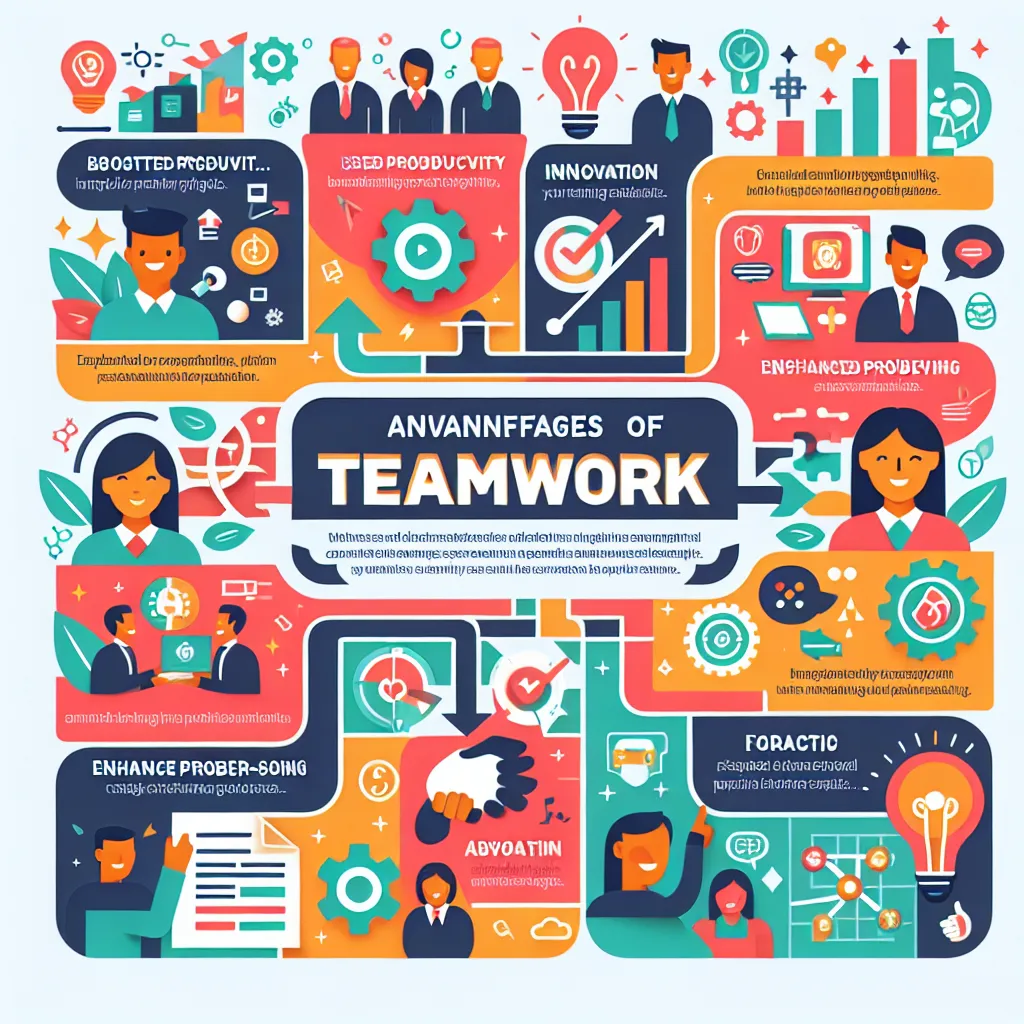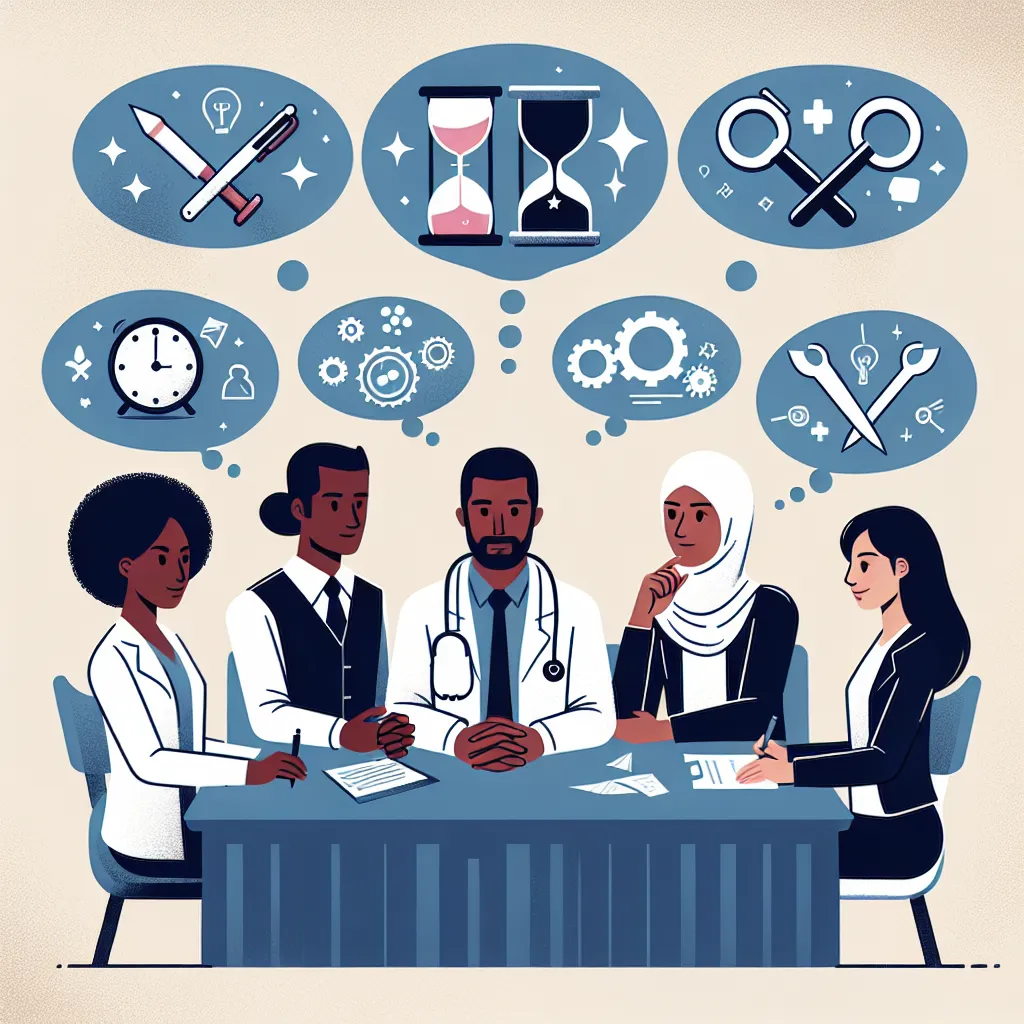Teamwork is a crucial skill in today’s workplace, and employers often seek candidates who can demonstrate their ability to work effectively in a team environment. When interviewing for a job, it’s essential to be prepared to discuss your teamwork experiences in a way that showcases your strengths and aligns with the company’s values. This article will guide you through the process of articulating your teamwork experiences in an interview, providing you with strategies to impress potential employers.
Understanding the Importance of Teamwork in the Workplace
Teamwork is more than just a buzzword; it’s a fundamental aspect of most modern workplaces. Employers value candidates who can collaborate effectively because:
- It enhances productivity and efficiency
- It fosters innovation and creativity
- It improves problem-solving capabilities
- It creates a positive work environment
Understanding these benefits will help you frame your experiences in a way that resonates with interviewers.
 Importance of Teamwork
Importance of Teamwork
Preparing to Discuss Your Teamwork Experience
Before your interview, take some time to reflect on your past teamwork experiences. Consider the following:
- Specific projects where you worked as part of a team
- Roles you’ve held within teams
- Challenges you’ve faced and overcome as a team
- Successes you’ve achieved through collaboration
Having these examples fresh in your mind will help you provide concrete, relevant responses during the interview.
Common Interview Questions About Teamwork
Be prepared to answer questions such as:
- “Can you describe a successful team project you’ve been part of?”
- “How do you handle conflicts within a team?”
- “What role do you typically take in a team setting?”
- “How do you motivate team members?”
- “Can you give an example of a time you had to compromise for the good of the team?”
Structuring Your Responses
When discussing your teamwork experiences, use the STAR method:
- Situation: Briefly describe the context of your example.
- Task: Explain your role or responsibility in the team.
- Action: Detail the specific actions you took.
- Result: Share the positive outcomes of your teamwork.
This structure helps you provide concise, relevant answers that highlight your teamwork skills.
Showcasing Your Teamwork Skills
When talking about your teamwork experiences, focus on demonstrating the following key skills:
1. Communication
Explain how you’ve effectively communicated with team members, such as:
- Actively listening to others’ ideas
- Clearly expressing your thoughts and suggestions
- Using various communication tools effectively
Example: “In my last project, I initiated weekly stand-up meetings to ensure everyone was aligned on our goals and progress. This improved our communication and helped us complete the project ahead of schedule.”
2. Collaboration
Highlight instances where you’ve worked well with others:
- Sharing resources and information
- Supporting teammates’ ideas
- Combining different strengths to achieve a common goal
Example: “During a challenging product launch, I collaborated with the marketing and development teams to create a cohesive strategy. By leveraging each team’s expertise, we successfully introduced the product to the market with positive customer feedback.”
3. Adaptability
Demonstrate your ability to adjust to different team dynamics:
- Working with diverse personalities
- Adapting to changes in team structure or project scope
- Being flexible in your role within the team
Example: “When our team lead unexpectedly left mid-project, I stepped up to help coordinate tasks among team members. This flexibility allowed us to maintain our momentum and meet our deadlines.”
4. Problem-Solving
Show how you’ve contributed to resolving team challenges:
- Identifying issues that affect team performance
- Proposing creative solutions
- Implementing strategies to overcome obstacles
Example: “When our team faced budget constraints, I proposed a cost-saving measure that involved restructuring our workflow. This solution not only saved the company money but also improved our overall efficiency.”
5. Leadership
Even if you’re not applying for a leadership position, showing initiative within a team is valuable:
- Taking the lead on specific tasks or projects
- Motivating and inspiring team members
- Mentoring or supporting less experienced colleagues
Example: “In our last team project, I took the initiative to create a shared document for tracking our progress. This helped everyone stay accountable and allowed us to identify and address bottlenecks quickly.”
Addressing Challenges in Teamwork
Interviewers often want to know how you handle difficulties in team settings. Be prepared to discuss:
- Conflicts with team members and how you resolved them
- Instances where the team faced setbacks and how you overcame them
- Times when you had to work with difficult personalities
When addressing these situations, focus on the positive outcomes and learning experiences rather than dwelling on the negatives.
Example: “In a previous role, I worked with a team member who often missed deadlines. Instead of becoming frustrated, I initiated a conversation to understand their challenges. We then worked together to create a more manageable timeline, which improved their performance and our team’s overall productivity.”
 Overcoming Teamwork Challenges
Overcoming Teamwork Challenges
Follow-Up Questions and Sample Answers
Here are some additional questions you might encounter, along with suggested responses:
-
Q: “How do you ensure all team members contribute equally?”
A: “I believe in setting clear expectations and roles from the start. I also encourage regular check-ins where each member can share their progress and any challenges they’re facing. This transparency helps ensure everyone is contributing and allows us to address any imbalances quickly.” -
Q: “Can you describe a time when you had to lead a team through a difficult situation?”
A: “In my previous role, our team was tasked with completing a project under a very tight deadline. I organized a brainstorming session to gather everyone’s ideas on how to streamline our process. We then prioritized tasks and delegated based on each member’s strengths. By fostering open communication and a collaborative spirit, we not only met the deadline but exceeded the client’s expectations.” -
Q: “How do you handle disagreements within a team?”
A: “I approach disagreements as opportunities for growth and innovation. I encourage open dialogue where all perspectives can be heard. Then, I try to facilitate a discussion to find common ground or a compromise that aligns with our team’s goals. If necessary, I’m not afraid to involve a mediator or supervisor to help resolve more serious conflicts.” -
Q: “How do you motivate team members who are struggling to meet their goals?”
A: “I believe in a supportive approach. First, I’d have a private conversation to understand the root of their struggles. Then, I’d work with them to develop a plan to get back on track, which might include additional resources, training, or adjusting their workload. Regular check-ins and positive reinforcement for progress made are also key to keeping them motivated.” -
Q: “Can you give an example of how you’ve improved team efficiency?”
A: “In my last role, I noticed our team was spending a lot of time in unproductive meetings. I proposed implementing an agenda system and time limits for each topic. We also designated a facilitator for each meeting to keep us on track. These changes reduced our meeting times by 30% and significantly improved our overall productivity.”
Common Mistakes to Avoid
When discussing your teamwork experiences, be careful to avoid these common pitfalls:
-
Focusing too much on individual contributions: While it’s important to highlight your role, remember to emphasize the team’s collective achievements.
-
Criticizing former team members: Even if you’ve had negative experiences, frame them positively as learning opportunities.
-
Exaggerating your role: Be honest about your contributions. Interviewers often value authenticity over grandiose claims.
-
Neglecting to provide specific examples: Vague statements about being a “team player” are less impactful than concrete examples of your teamwork skills in action.
-
Failing to show growth: Demonstrate how your teamwork skills have developed over time through various experiences.
Conclusion
Effectively communicating your teamwork experiences in an interview can significantly boost your chances of landing the job. By preparing thoughtful responses that highlight your collaboration skills, problem-solving abilities, and positive attitude, you’ll demonstrate your value as a team player to potential employers.
Remember to use specific examples, focus on positive outcomes, and show how your teamwork experiences have contributed to your professional growth. With these strategies, you’ll be well-equipped to impress interviewers with your teamwork prowess.
For more tips on acing your interview, check out our articles on how to discuss your decision-making skills in English and how to talk about your accomplishments in English.




